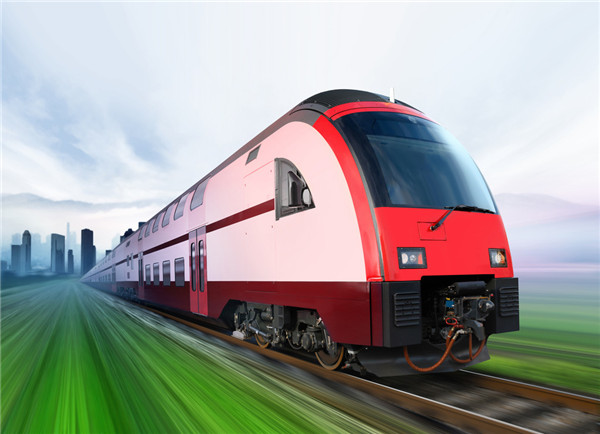Greater Bay Area studying potential for maglev line


A team led by the China Academy of Engineering is conducting a prefeasibility study on a high-speed maglev line in the Guangdong-Hong Kong-Macao Greater Bay Area, a senior rail expert said on Friday.
What the team has agreed on so far is that the Guangzhou-Shenzhen-Hong Kong maglev line will be underground, using maglev trains with a designed maximum speed of 600 kilometers per hour, said He Huawu, vice-president of the China Academy of Engineering, while delivering a keynote speech during the opening ceremony at the 2019 World Transport Convention in Beijing.
Experts have proposed preliminary plans for the alignment of the maglev line. A map on current progress displayed during his speech has outlined four alternatives, which will pass Guangzhou Railway Station or Zhujiang New Town in Guangzhou, or Qianhai district or Futian district in Shenzhen.
"The team will take into account all kinds of high-speed maglev models, such as high- and low-temperature superconducting maglevs, as well as the air-free tube and other key problems to decide the technical and economic feasibility," he said.
In February, the central government issued the Outline Development Plan for the Guangdong-Hong Kong-Macao Greater Bay Area, calling for a rapid intercity transport network that includes high-speed railways and intercity rail links to reduce travel time among major cities within the area to one hour or less.
Explaining why the team is considering using maglev technology to improve the Greater Bay Area's transport, He noted that maglev is the future of ultrafast trains.
China now operates commercial bullet trains that run at a top speed of about 350 km/h between Beijing and Shanghai. The high-speed train, under actual operation conditions during the research phase, was able to reach 420 km/h in 2016. However, limited by factors including noise and vibration, so far it is greatly difficult to push the speed of a wheeled train much higher, he said.
MOST POPULAR
- 1 China Daily's 'Shopping in China' platform appeals to intl audiences
- 2 China updates Catalogue of Encouraged Industries for Foreign Investment
- 3 Policies concerning expats, foreign enterprises in December 2025
- 4 China becomes the world's fourth manufacturing power
- 5 China ascends global higher education ranking







